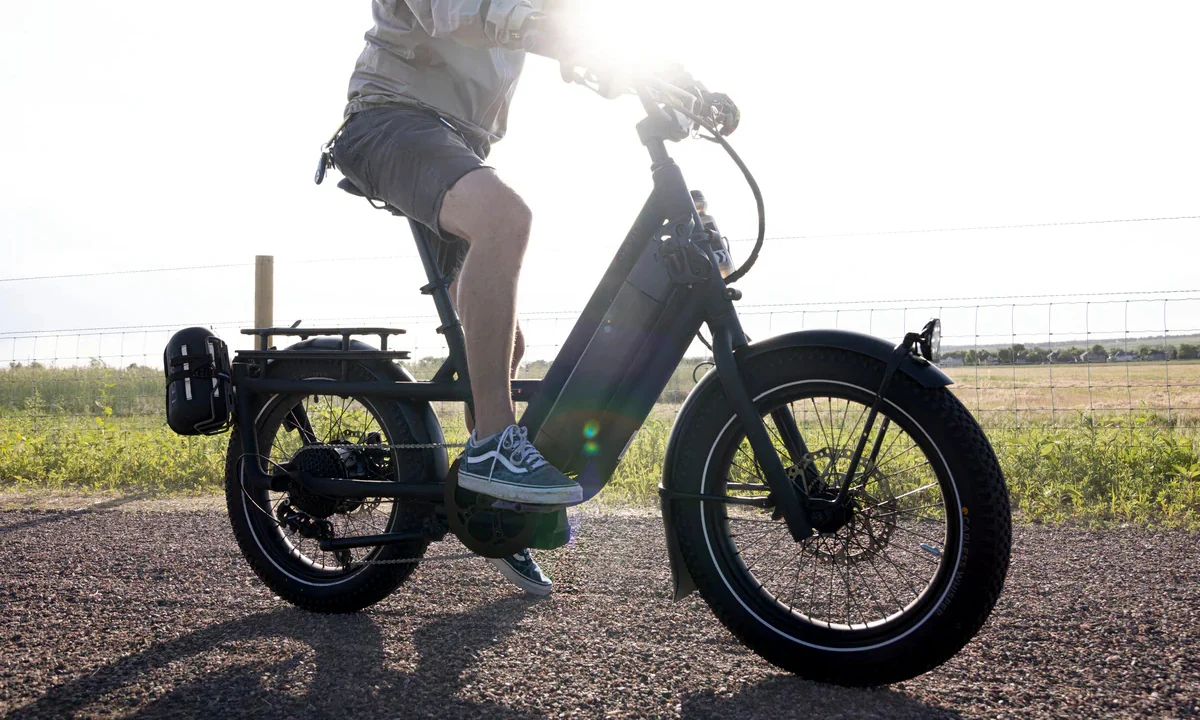Mountain bikes come in two basic flavors: hardtails and full suspensions. There are different types of hardtails and full-suspensions, but the big question a lot of mountain bikers ask is if a full-suspension bike is a “better” choice than a hardtail.
[button]Mountain Bike Types Explained[/button]
The truth is that no one really “needs” a full-suspension mountain bike. With enough skill and determination, a good hardtail rider can do just about anything a full-suspension rider can. Objectively though, full-suspension bikes do provide a few key advantages over hardtails. I’ll cover the basics, so you can decide for yourself if you “need” one or not.
[button]Shop Mountain Bikes[/button]
The Advantages of Full-Suspension Mountain Bikes
- More comfort on rough terrain
- More traction on rough terrain
- More confidence on rough terrain
The first mountain bikes were fully rigid, with no suspension forks or rear suspension. Ask any grungy old mountain biker what the biggest MTB innovation has been in the last 30 years, and I guarantee most would point to suspension.
Suspension helps absorb shocks from bumps, dips, rocks, and roots in the trail, improving comfort and reducing rider fatigue. It helps keep your tires in contact with the ground, improving traction and control. Combine both of these qualities, and suspension can also improve your confidence when riding tough or technical terrain.
A hardtail with a suspension fork is plenty capable, but on rough trails, a full-suspension bike is simply more comfortable, especially for your back, bottom, legs, and feet. A full suspension can transform the riding experience from chattery and painful to smooth and plush.
Because the rear end can absorb and react to changes in terrain, full-suspension bikes provide more traction, especially when the surface is loose or rough. Riders also don’t have to be as careful with their line choice, because the rear suspension can absorb impacts that would unsettle a hardtail.
Most riders can corner and descend faster on a full suspension than they can on a hardtail, especially on tougher and more technical trails. The extra traction can even help on climbs, by keeping the rear end planted.
The Drawbacks of Full-Suspension Mountain Bikes
- Higher cost
- More maintenance
- Added weight
- Might be less efficient on smooth terrain
Adding a rear shock, linkages, and pivots to a bike frame increases complexity. In comparison, hardtails are much simpler. Because of this, full-suspension mountain bikes are generally more expensive than a comparable hardtail. The difference can be hundreds or even thousands of dollars.
More complexity means there's more that can go wrong with your bike. Full-suspension bikes require more maintenance, ranging from regular (ideally once a year) rear shock services to occasional pivot bearing replacements. If you ride in extremely muddy, wet, or dusty conditions, you might have to perform these services more often. This adds cost and potential headaches. Some rear suspension systems are also prone to annoying creaks when they aren’t serviced regularly.
More parts also mean full suspension bikes will be heavier than a comparable hardtail. Full suspensions could be anywhere from 2-10 pounds heavier depending on the bike’s design and frame materials. Now, weight isn’t everything, but it’s something a lot of riders care about.
Finally, if your regular riding terrain is smooth — dirt roads, fire roads, gravel, easy singletrack, flow trails — then a full suspension bike might be overkill. Most full-suspension bikes can lock out the rear shock to keep the rear end from bobbing on smooth terrain, but if that’s what you ride most often, a hardtail will be lighter, simpler, and more efficient.
When is a Full-Suspension Mountain Bike Justified?
- You want to improve your speed on rough trails
- You want to improve your confidence on rough trails
- You need more comfort on rough trails
- You like cool stuff
Consider the type of terrain you’ll be riding the most. If your trails are rough, rocky, rooty, or steep, then choosing a full-suspension mountain bike could be the right move.
If your goal is to descend as fast as possible, a full suspension will provide more traction and control, and provide more line options. It can give you more confidence to push the limits of your riding. If you feel like your body is getting beat up or you have back, knee, or ankle injuries that need support, full suspensions can make riding rough terrain a lot more bearable.
Also, if you’re just a gear nerd who likes cool bikes, that’s a good reason to choose a full suspension too. The best bike is one that makes you happy! Some rider are happier on a hardtail because it saves money and is simpler to live with.
[button]Shop Mountain Bikes[/button]
























